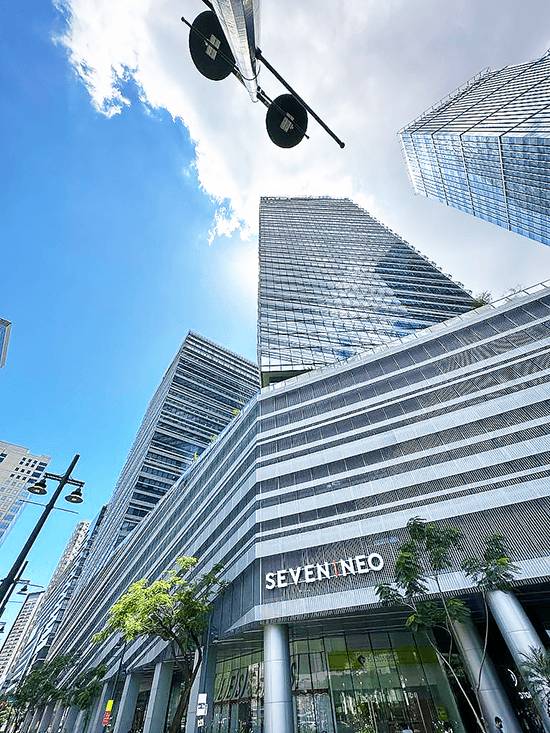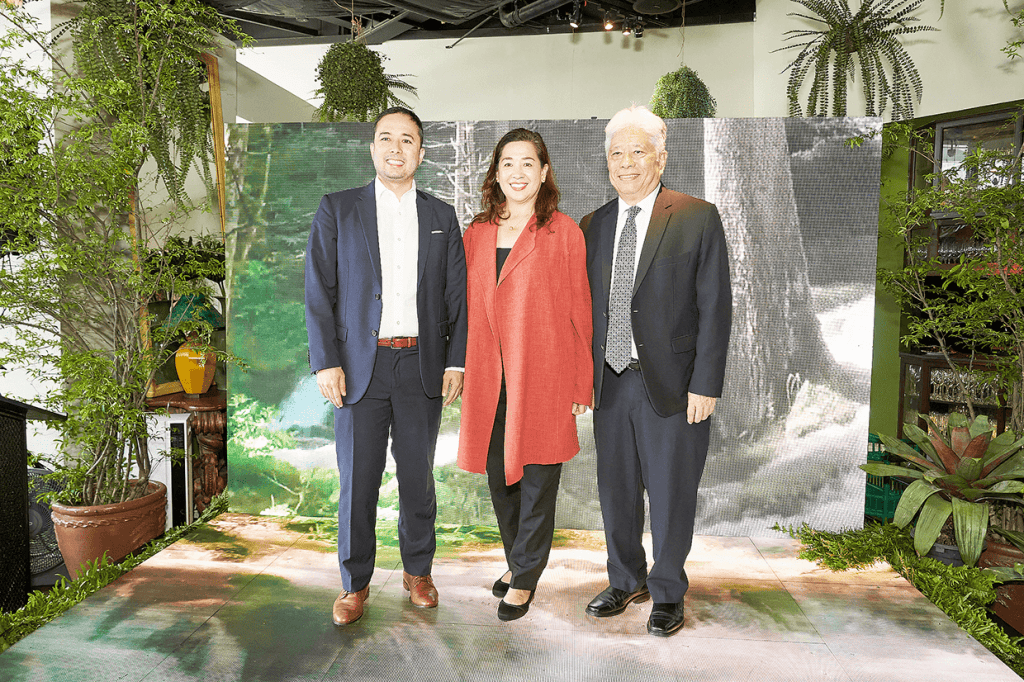As it is a large contributor to greenhouse gas emissions, the real estate sector should have a larger role to play in pushing for sustainability. This is the advocacy that property developer NEO has been living by for years now.
“The real estate and construction industry is responsible for close to 40 percent of greenhouse gas (GHG) emissions. NEO advocates for sustainability and green buildings, specifically net zero, healthy, and resilient buildings as our industry’s call to action to reduce its carbon impact,” NEO chief executive officer Raymond Rufino said in an email interview.
“Sustainability is at the core of NEO’s vision, mission, and values. As a real estate owner, developer, and manager, we believe a deep commitment to sustainability is our responsibility to our country, community, and customers as it enhances the overall quality of human life while minimizing environmental impact and preserving precious resources for future generations,” he added.
Currently, NEO has a portfolio of 256,707 square meters of gross floor area (GFA) across its seven top certified green buildings located in the business and lifestyle district of Bonifacio Global City in Taguig. Its clients and tenants range from large multinational firms to key service providers across various industries and sectors.

Rufino said that green buildings are good for the environment, the community where these buildings are located, and most importantly, for the people who live, work, and play in these areas every day.
“Green buildings do this by improving their indoor air quality, enhancing well-being and comfort, reducing noise disturbances, providing access to nature, lowering operating costs, fostering community engagement, and promoting environmental stewardship. This makes green buildings more relevant and valuable to all stakeholders,” he said.
The company’s push for green building is part of its efforts to take accountability for urgent global concern of high GHG emission from the real estate and construction industry.

“To address this, we at NEO strive to innovate and make a positive difference. From the actual physical properties to community engagement activities to advocating across the industry, NEO continues to work on multiple fronts to transform the Philippine real estate landscape toward sustainable buildings, communities, and cities. Sustainability is the very core of NEO’s purpose and responsibility,” NEO president Carlos Rufino said.
He said that the worsening climate crisis has brought more evidential, critical changes such as shifting weather patterns, rising sea levels, extreme weather events and disruptive natural disasters. The deficit in freshwater resources, land degradation and environmental pollution are other harmful impacts caused by poor planning, use and management of resources.
“NEO addresses these issues with accountability through our deep commitment to green, net zero buildings. We believe this is the industry’s best solution for both carbon reduction and meeting the United Nations Sustainable Development Goal 11: Sustainable Cities and Communities,” he said.
“May our active involvement across multiple building certifications and ratings for sustainability set into motion fellow local owners and developers to pursue green net zero buildings. NEO has demonstrated that local projects can be designed, constructed, and operated at a world-class level where harmful impact on the environment is reduced while enhancing the health and well-being of building occupants and users,” the older Rufino said.
Sustainability report
As part of its efforts to encourage fellow real estate developers to work toward net zero buildings, the company recently launched its inaugural sustainability report, which highlights the efforts that the company has made throughout the years toward sustainable development.
“As a private corporation, NEO is not required to prepare annual ESG reporting. However, we felt it is important for us to communicate our focus areas, commitments, and performance as part of our deep commitment to both people and planet. On that note, we welcome you to our first ever Sustainability Report covering the year 2021 and thank you for taking the time to join us on this journey,” Raymond Rufino said.
Rufino explained that 2021 was met with landmark achievements for NEO as its portfolio reached net zero carbon emissions with verification through both the International Finance Corp.’s (IFC) EDGE Zero Carbon certification and the Philippine Green Building Council’s Advancing Net Zero Philippines program.
He said this allowed NEO to attain Net Zero four years ahead of its original commitment of Net Zero by 2025.
“The pandemic has further highlighted the importance of human health and safety, which has always been a priority for the group. NEO became the first office portfolio in Southeast Asia to achieve the WELL Health-Safety Seal from the International WELL Building Institute (IWBI) and is also a Pilot Partner of the Philippine Green Building Council’s Health and Well-being for Buildings Rating Tool for Five/NEO,” Rufino said.
Enhancing resilience
Rufino, meanwhile, said climate adaptation through enhancing resilience at both the building and organizational level is another focus area.
He added that the group was also a Pilot Partner for IFC’s Building Resilience Index (BRI) program, where Seven/NEO earned the highest rating of A+.
“We are targeting to achieve resilience ratings under BRI for the remaining buildings of the portfolio in 2022,” Rufino said.
NEO Managing Director for Property Management Gie Garcia said the company, in collaboration with the IFC, intends to publish its resilience rating on the BRI online platform. This collaborative effort aims to enable owners, developers, and managers to evaluate the resilience of NEO buildings while also encouraging them to assess their own properties’ resiliency.
Garcia said the BRI offers a valuable opportunity to publicly disclose resiliency ratings, reassuring stakeholders that their properties are secure and capable of withstanding natural disasters.
Additionally, Garcia said this disclosure can inspire others to seek project verification, mainly considering the Philippines’ susceptibility to natural disasters.
Garcia said the BRI applies to both existing and new buildings nationwide. The platform assesses and verifies the resiliency of building installations, design, and operational policies in the face of natural disasters.
“While it is possible to keep the information private once it has been verified and the rating has been received, we have chosen to publish it to share our best practices in constructing a safe and resilient infrastructure,” she added.
Despite already achieving net zero operational carbon, Rufino stressed that the company continues to target more sustainability goals.
“While we have already achieved Net Zero operational carbon, we need to keep pushing environmental performance. We are now exploring Net Zero embodied carbon and WELL Certification including the WELL Equity Rating where NEO is an early adopter as part of our Diversity, Equity, and Inclusion (DEI) focus,” the chief executive officer said.
“2023 is an exciting year for NEO as we embark on expansion across multiple fronts from developing new projects, establishing joint ventures in new businesses, and expanding our client base for our services. Many of these are still in their initial stages but momentum is building quickly,” he added.
